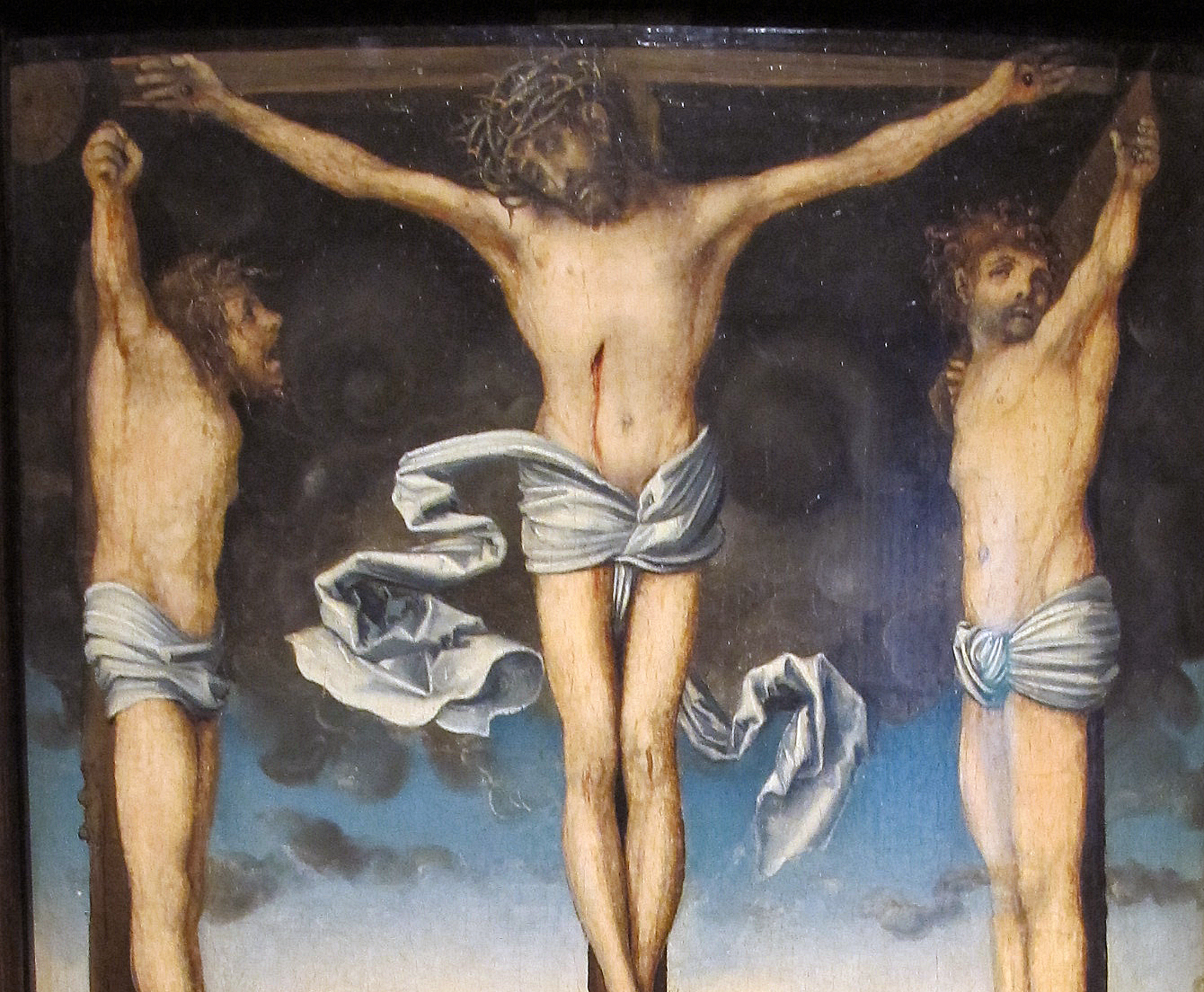A sermon on Jeremiah 23:1–4 and Luke 23:33–43, for Kensington Community Church in San Diego, CA, for Christ the King Sunday. Much gratitude is due to the Rev. Nadia Bolz-Weber, whose 2015 sermon for Christ the King Sunday heavily influenced the sermon below.
Missed calls from Ronan Farrow
On October 5th, 2017, investigative journalists Jodi Kantor and Meghan Twohey published an article in the New York Times detailing decades-long allegations of sexual harassment against the producer Harvey Weinstein.
A few days later, the New Yorker published an even deeper exposé by journalist Ronan Farrow, in which 13 women share claims of sexual violence committed by Weinstein.
Farrow’s article opened like this:
Since the establishment of the first studios, a century ago, there have been few movie executives as dominant, or as domineering, as Harvey Weinstein. … His movies have earned more than three hundred Oscar nominations, and, at the annual awards ceremonies, he has been thanked more than almost anyone else in movie history, ranking just after Steven Spielberg and right before God.
As the months of October and November would unfold, we began to learn about more and more people who’d been harassed, assaulted, or worse by Weinstein. More people who this man’s dominating presence robbed of agency and power.
And just months later, Weinstein would be arrested in Los Angeles, to be tried, and later convicted, for these acts of violence.
In the year that followed, Farrow, Twohey, Kantor and so many others would document further claims of bad behavior on the part of powerful men all over the world in what would come to be known as the “me too” movement. Refinery 29 would go on to call 2018 the “year of the public apology.”
It was starting to feel like maybe, just maybe, the bad guys didn’t have to keep winning. Maybe giants could fall. Maybe, as the Reverend Nadia Bolz-Weber says, dominant powers would not turn out to be ultimate powers.
The next Halloween, for my work’s costume contest, I dressed up as a cell phone with 10 missed calls from Ronan Farrow and a text message saying, “care to comment?” I told folks I was keeping track of who thought the costume was supposed to be a scary costume versus who thought of it more like a “super hero” costume. For the record, I was only halfway-joking with that one.
Many of the people who had claims made against them in the early “me too” movement have truly received due consequence for their violence against women. But far too many saw only a temporary consequence, and have returned to power with little if any effort to reconcile their wrongs.
Violence shall not always reign
I came of age in a religious community that assured me I could never find, much less celebrate, love and care as a gay man. But from inside the stained-glass closet where I grew up, I could see people fighting for my liberation; I could see folks marching in the streets for a world where people would be safe like me.
And in 2015, with the Obergefell v. Hodges ruling, it felt like we’d won! Marriage rights, gifted to all like Oprah gives out cars, “you get a wedding, you get a wedding!” I started thinking, then, that maybe I could come out of the closet one day. Maybe I could find love after all.
But of course, that wasn’t the final or ultimate victory.
For one thing, I forgot to reconcile that I still had to deal with the whole dating thing. Truly, if you have a choice, I do not recommend being interested in men. We’re the worst.
But more importantly — marriage isn’t the sum of all rights and protection for LGBTQIA+ people. It was years before laws would be interpreted to protect queer and trans people from discrimination in housing, employment and government services.
And queer liberation did end up progressing a bit for a little while, but they’ve also regressed somewhat.
A year or so later, on my 23rd birthday, I woke up to the news that a mass shooter had killed 49 people and injured 53 more at the Pulse nightclub in Orlando, Florida.
I was heartbroken, but I saw our communities come together in response in the most beautiful ways you’ve ever seen.
We’ve seen nonsense, homophobic demonization of drag queens and drag clubs.
This morning, many of us woke up to news of a mass shooting at the Q night club in Colorado Springs. And I’m ashamed to say, I caught myself saying “oh thank goodness only 5 lives were lost today.” Of course, every life lost is a tragedy. We’ve just accustomed ourselves to such extreme mass grieving, that 5 feels like a relief.
The rise and fall of justice is painful and tough to watch, but the Christian narrative tells us that it’s not the whole story.
Dominant powers and ultimate powers
Christ the King Sunday was kind of “invented,” added to the liturgical calendar, a few years after the end of World War I, in 1925.
Which at first might seem odd—hadn’t war taught us not to be so obsessed kings and czars and rulers and all that?
But if you ask Pope Pius IX, who started the whole thing, he would say that’s exactly the point. Just years after we all should have learned the folly of human struggles for power, Pope Pius identified the foreshadows of totalitarianism in Spain, Italy, Russia and Germany. In his institution of the Catholic celebration of Christ the King Sunday, which would later be adopted into protestant lectionaries, Pope Pius thought it important to name that God—not emperors, nor petty monarchs, nor czars, but the God whose image we all bear—was true sovereign of the earth. The powers that seem dominant will not be ultimate, and should prepare themselves for God’s rightful reign.
Its timing is no accident, either. Christ the King Sunday comes just before Advent to remind us of why the advent of Jesus is so important. The infant whose arrival we await in advent is an infant King.
Christ the subject-king and shepherd-lamb
And importantly, the way God reigns is so very different from the way that and emperors and petty monarchs reign.
When Jesus Christ came to tell us all about the kingdom of heaven where the last are first and the first are last, he did not come on a big white horse, armed with swords and AK-47s and drones to take down the Roman empire.
Instead, he came as the Lamb of God, slain for the world. Christ, the Good Shepherd, did not come to reign over his sheep, but to reign with them. The Shepherd-King is also the lamb subject to empire.
And at the cross—at Golgatha, the place called the skull—God, in Jesus’ flesh, says, “your suffering now is not the ultimate suffering.”
When we look at ourselves and see only the stuff about which we are most ashamed; when we see only icky systems of power and domination that tell us we are defined by the worst thing we’ve ever done; when the power of the oppressor says “I’m gonna get you,” Jesus says no.
Jesus suffers with us, experiencing the cross in solidarity with human suffering, then assures us that this is not the end of our story.
“Today, you will be with me in paradise.”
You may feel crucified right now. Attacked by forces of violence all around. But soon, very soon, things will get better.
Jesus says “have hope.”
God’s reign is sure, and will outpace any evil reign on earth.
Dominant powers are not ultimate powers.
Amen.

